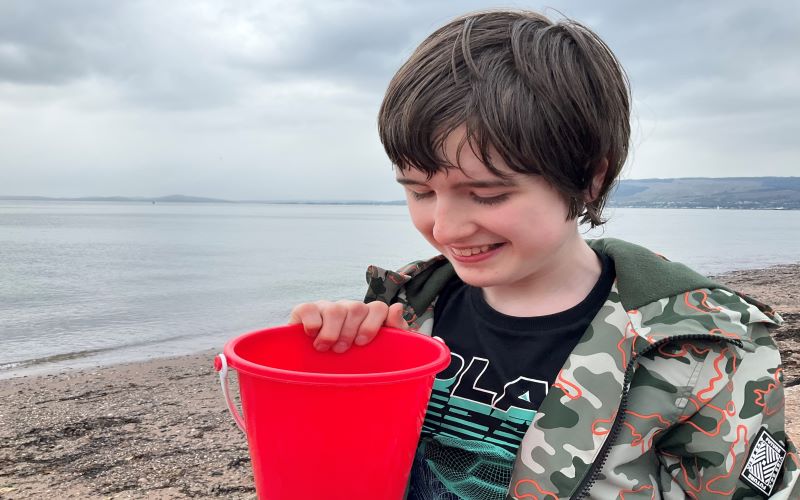Care needs of a toddler but the body of a man

Miriam Gwynne
Full time mum and carer for two truly wonderful autistic twins. I love reading, writing, walking, swimming and encouraging others. Don’t struggle alon...

Few people talk about disability in teenagers.
The parenting books don’t tell you how to cope with a non verbal high needs child who is taller and stronger than you are.
How do I keep him, and others, safe as his physical capacity grows but his understanding doesn’t? What will happen to him when schooling ends? How do I care for him for the rest of my life?
These are just some of the questions I find spinning in my mind as I lie in bed at night trying to sleep.
He’s only 13 yet the damage he can do in a meltdown is so much more than when he was a child, the places I can take him too get smaller by the day and the products he requires to meet his needs get ever more expensive.
Yet the expectations of society are now greater than ever. Gone are the looks of sympathy or compassion and in their place increasing judgment and condemnation.
“Haven’t you got him to stop doing that by now?”
“He’s far too old to be doing that.”
“Surely he should be using the gents toilets at his age?”
Then you have the added needs of puberty. Hair washing is traumatic for everyone so just the thought of shaving him terrifies me.
Consent becomes a huge issue too.
If he doesn’t consent to taking vital medication or a bathroom visit or washing does he have to right to really say no if he can’t understand the implications?
But how do you make someone who is taller and stronger than you do anything they don’t want to?
Gone are the days of physically lifting him from the middle of the road when he chose to just sit down or bribing him with ‘first and then.’ Do I allow a beard and moustache to grow even though he lacks the ability to keep them neat and clean?
Then you have by far the biggest issue ever: what about the future?
For children like my son with the most complex needs who have always attended specialist schools there isn’t really much option for adult years.
College or university aren't suitable and it becomes all about moving to adult social care where the person is looked after by carers either in the community or in day care.
It’s simply about entertaining him then getting him home again. It’s about cost, budgets and legal battles for power of attorney. It’s about applying for benefits in his name that he has no idea even exist.
As others his age now make subject choices at school with future careers in mind my son is still happy watching Peppa Pig on YouTube.
While other teenagers become increasingly independent and go places with their peers he is at home as always with no friends and no speech.
The older he gets the harder it is to see the differences every day. So few talk about disability after a certain age as if by the time children finish primary school their needs disappear. It’s somehow taboo to speak about a teenager with the mind and ability of a toddler.
I will always be his mum but unfortunately I will also need to be his carer too.
He is a disabled teenager who one day soon will be a disabled adult. We must never forget that disabled children grow up, at least in body if not in mind.
If only more people out there were willing to talk about those disabled teenagers like mine who still have the care needs of a young toddler. Maybe then I wouldn’t feel so alone right now.


